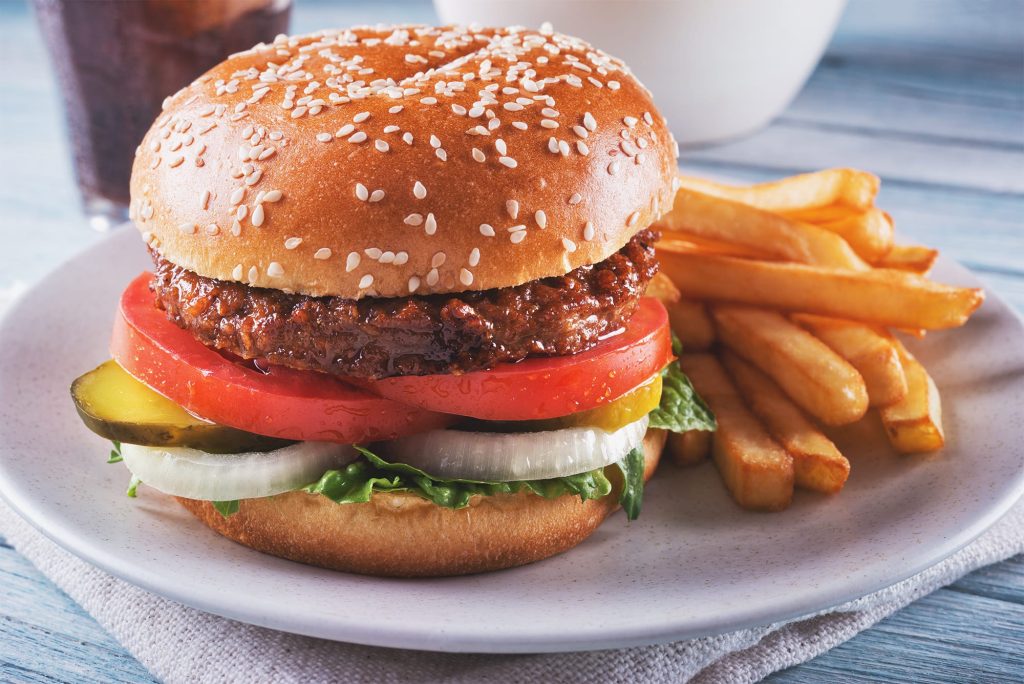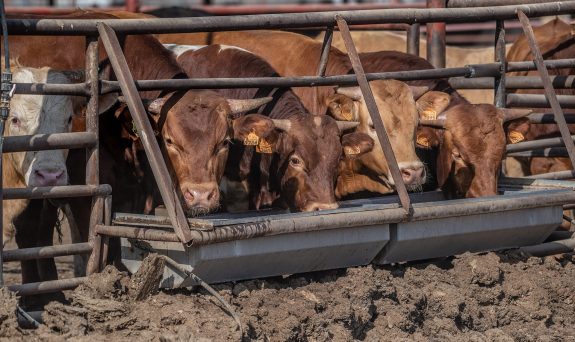March 22 is World Water Day, an international day focusing on sustainability and the responsible use of water.
While many Canadians make efforts to conserve water—like taking shorter showers or turning off the tap while brushing one’s teeth—these actions make a meager impact in comparison to dietary change.
The meat, dairy, and egg industries are notoriously water-intensive. While marketing campaigns led by Canada’s animal agriculture industries aim to dupe consumers into thinking these foods can be sustainable, this couldn’t be further from the truth.
Studies show that animal agriculture is responsible for 20-30 percent of all freshwater consumption in the world today.
From the water used to grow crops to feed cows, pigs, and chickens, to the resources needed for production and packaging, it requires immense amounts of water to put steak, pork chops, milk, and omelets on our plates.
Amount of water its takes to produce these common foods:
| Food | Quantity | Water Consumption in Litres |
|---|---|---|
| Beef | 1 kg | 15,415 |
| Sheep Meat | 1 kg | 10,412 |
| Pork | 1 kg | 5,988 |
| Butter | 1 kg | 5,553 |
| Goat Meat | 1 kg | 5,521 |
| Chicken Meat | 1 kg | 4,325 |
| Cheese | 1 kg | 3,178 |
| Milk | 250 ml glass | 255 |
| Egg | 60 g | 196 |
| Rice | 1 kg | 2,497 |
| Dry Pasta | 1 kg | 1,849 |
| Bread from Wheat | 1 kg | 1,608 |
| Corn | 1 kg | 1,222 |
| Apple | 1 kg | 822 |
| Banana | 1 kg | 790 |
| Potato | 1 kg | 287 |
| Tomato | 1 kg | 214 |
Grains, fruits, vegetables, and other plant-based foods obviously fare much better than animal-based foods.
And plant-based meat products are also a more water-friendly option than animal foods. Plant-based meat uses 72-99 percent less water than meat does, according to statistics compiled by the Good Food Institute.

Water that can be saved by opting for these plant-based meat products:
| Product | Instead of This Conventional Meat | Reduces Water Use (L/kg) By This Much |
|---|---|---|
| Impossible Burger 2.0 | Beef burger | 87% |
| Beyond Burger | Beef burger | 99% |
Conserving water helps reduce water shortage frequency and impacts, diverts less water from rivers and bays, and saves on energy used in water treatment systems.
We can all play a role in helping the environment by reducing our water consumption, and a great place to start is by choosing plant-based foods that are kinder to animals, and better for the planet.
Banner: Jo-Anne McArthur | Israel Against Live Shipments | We Animals Media




